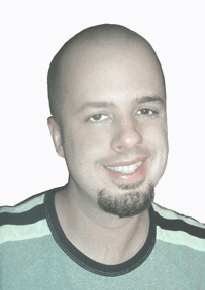|
Who went to see the Elephant
(Though all of them were blind),
That each by observation
Might satisfy his mind.
The First approached the Elephant,
And happening to fall
Against his broad and sturdy side,
At once began to bawl:
"God bless me! but the Elephant
Is very like a wall!"
The Second, feeling of the tusk
Cried, "Ho! what have we here,
So very round and smooth and sharp?
To me 'tis mighty clear
This wonder of an Elephant
Is very like a spear!"
The Third approached the animal,
And happening to take
The squirming trunk within his hands,
Thus boldly up he spake:
"I see," quoth he, "the Elephant
Is very like a snake!"
The Fourth reached out an eager hand,
And felt about the knee:
"What most this wondrous beast is like
Is mighty plain," quoth he;
"'Tis clear enough the Elephant
Is very like a tree!"
The Fifth, who chanced to touch the ear,
Said: "E'en the blindest man
Can tell what this resembles most;
Deny the fact who can,
This marvel of an Elephant
Is very like a fan!"
The Sixth no sooner had begun
About the beast to grope,
Than, seizing on the swinging tail
That fell within his scope.
"I see," quoth he, "the Elephant
Is very like a rope!"
And so these men of Indostan
Disputed loud and long,
Each in his own opinion
Exceeding stiff and strong,
Though each was partly in the right,
And all were in the wrong!
The difficulty with these gentlemen's pursuit of the facts is that there is something more dire than determining the attributes of an elephant. What hangs in the balance is the eternal questions of who are we, why are we here and what if anything awaits us beyond the grave.
With our origin, purpose and future at stake, the demand for us to be relentless in the pursuit of truth is great. The characters in the poem, much like the originators of the quotes at the top of the article seem to lack curiosity about their subject matter.
The truth does not change regardless of our knowledge, how we feel or believe about it. The truth remains absolute and completely independent of us.
Trying to shape the truth is on the same level with assembling your own god. A god that can be created, shaped, configured or molded to our will is not god but merely a reflection of us and lacking authenticity.
.
|
|
